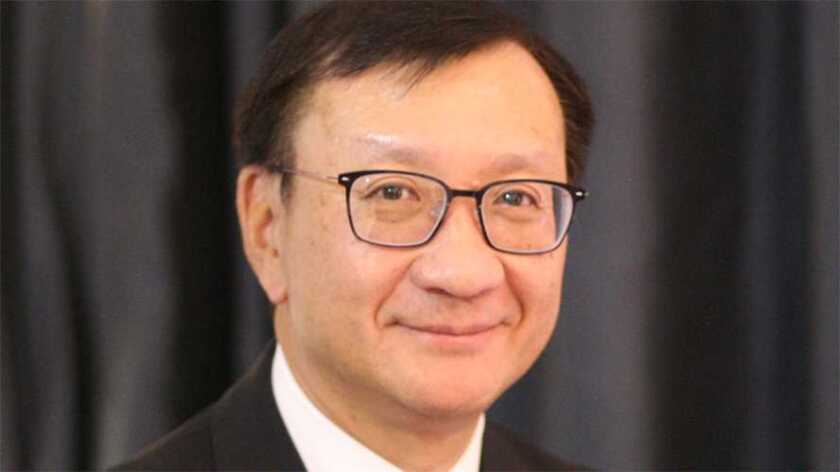CITIC Telecom CPC’s acquisition of European operator Linx Telecommunication has enabled the Chinese company to expand its cloud services to Europe. “Cloud computing is a very important initiative to us,” says CEO Stephen Ho. “Most of our cloud computing sites are in Asia, but we are now in Frankfurt and London and we are building one in Moscow.”
The company calls this project the Europe and Russia Cloud Ring. “Linx Telecom came on the market, with a network that was on the route of the old Silk Road, covering eastern Europe and a bit of Russia,” says Ho (pictured). “It was an opportune time for us to expand our reach into Europe.”
This also fits neatly with China’s Digital Silk Road policy, also known as One Belt, One Road, by which it is building links through to central Asia and Europe. CITIC Telecom CPC is controlled by state-controlled CITIC, formerly the China International Trust Investment Corporation. Its strategy is to build global links – initially for Chinese companies but increasingly for world companies wanting access to China – along this new Silk Road.
“We’re not very heavy into infrastructure per se. We’re asset-light,” says Ho. “China Telecom, China Unicom and China Mobile are Tier-1 operators and we buy from them. Sometimes we cooperate and sometimes we compete.”
Ho has been CEO of CITIC Telecom since the start of 2001, and he is a recognised international figure in the industry. In January 2018 he was elected for the third time as president and chair of the board of Pacific Telecommunications Council (PTC) at its annual meeting in Hawaii. Sharon Nakama, the PTC’s CEO, said that he “has been unfailingly supportive of PTC’s vision, mandate and actions”.
He’s also extremely well connected in Hong Kong, where CITIC Telecom has its international base. He’s on the board of directors of the Hong Kong Applied Science and Technology Research Institute (ASTRI). “We’re very active in blockchain and 5G,” he says of the institute. “We have 500 PhDs – most of our staff are PhDs.”
We turn back to CITIC Telecom’s strategy. What would have happened if the company hadn’t come across Linx Telecom. “We would have built the network ourselves,” he says. “It would have taken time and a little bit of pain.” But a bank approached Ho, acting as an intermediary for Linx’s owners. “It was an extension of what we were doing already.”
The company has evolved since Ho has been CEO. “We have been in cyber-security since 2006,” he says. “But willingness to spend money on cyber-security was low in those days. Now it catches a lot of people’s attention – and not just in the finance department. In Hong Kong, the monetary authorities are adamant that institutions have a security officer – and in China too. We were very lucky because we had the product already.”
It’s a similar story with CITIC’s cloud services, “which we’ve been doing since 2011”. Some of the company’s customers are using other cloud platforms, he adds, “but using our network. If customers want to use our platform, it becomes part of the network. In the not too distant future, the network becomes part of the platform.”
Ho admits that the Linx network is still not fully integrated into CITIC Telecom. “We’re doing the integration, but we don’t want to do it at a very high pace. We have to learn the market ourselves,” he says.
“A lot of Chinese companies are moving into Europe and we want to serve them. We want to understand more of the market. We don’t want to rush into something we don’t know. And we don’t want to jeopardise service quality.”
Integration is a challenge, he admits. “The IT systems have to be integrated and you have to take tough decisions. We’re migrating a lot of CITIC expertise into Linx.” One of the biggest challenges is the billing side: Linx had a series of local billing engines.
But following the takeover there is an increasing amount of cross-selling – Asian customers that want to get to Europe and vice versa. “A Singapore customer already uses us across Asia and now is talking about expanding its services to Europe,” says Ho, with local support and bills in euro. “We have a number of these in the pipeline in Asia. Now the company has a global capability.”
Other challenges, he adds, is getting the right people – not just in Europe but also in Asia. “China is a big place and we’re looking for people who are very service-oriented. It’s very hard to get people with the talent, and people who can work in different locations around the world – that’s a challenge.”






